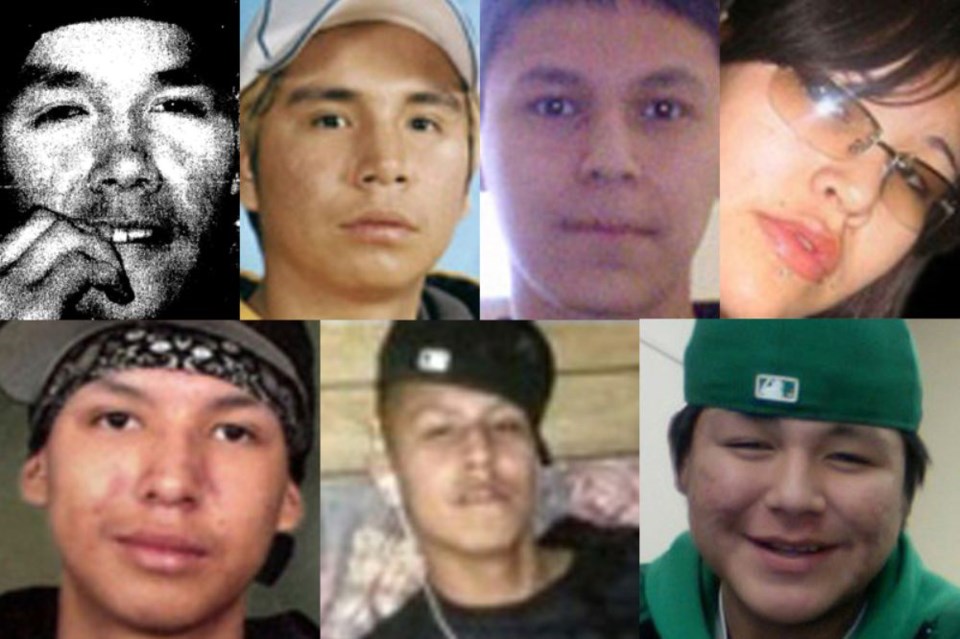THUNDER BAY – The City of Thunder Bay has released its fifth annual report responding to the 2016 inquest into the deaths of seven youth who traveled to the city from their home First Nations to attend school.
The jury in the coroner’s inquest into the deaths of Jethro Anderson, Reggie Bushie, Robyn Harper, Kyle Morrisseau, Paul Panacheese, Curran Strang and Jordan Wabasse issued 145 recommendations in 2016 to a number of agencies, including 31 directed to the City.
The City reported some progress in 2020, while stating the COVID-19 pandemic had prevented other actions from moving forward.
The city saw its grade slip last year in an annual “report card” from Aboriginal Legal Services of Toronto, which represents families of six of the seven youth, tracking progress on inquest recommendations.
First issued a C+ in 2017, the city’s grade improved to an A by 2019, but fell to a B last year.
The City previously reported that 25 short-term recommendations were all implemented in some form, with 20 implemented as recommended, four already in place, and one alternate recommendation implemented.
Of six medium- and long-term recommendations, the city reports three are now implemented, up from one last year.
Those include a public education and awareness campaign around hate-motivated crimes targeting Indigenous people in Thunder Bay, set to launch by the end of June, and enhanced Indigenous Cultural Awareness training now rolling out to city staff, though the process is expected to take years.
Another two medium-term recommendations have plans or materials completed for implementation, and one – the development of a year-round safe sobering site for youth – has been identified as needing additional action, and work has been on hold due to COVID-19, the city said.
The city has established an internal team to guide implementation of the inquest recommendations, including high-level staff like the city clerk and directors of multiple departments.
“The recommendations were a catalyst for systemic change within the City, leading to updated approaches, including the Indigenous Relations and Inclusion Strategy,” reads a report from Indigenous relations and inclusion manager Regina Mandamin that will be presented to city council for approval on Monday.
The city’s Indigenous Relations and Inclusion section will also undertake a more in-depth analysis of each recommendation “to gauge to which degree each is adopted in the daily operations of the City, and if the original intent of each recommendation is adequately met,” the city announced.
That analysis is expected to be shared with city council in November.
Highlighting recent efforts toward meeting the inquest’s recommendations, the City said it will launch a major implementation piece around Recommendation 112 in the coming days.
That will involve a public education campaign around hate-motivated crimes targeting Indigenous people in Thunder Bay, identified as a leading concern for students coming to the city from First Nations.
Campaign materials will include posters, postcards, radio, print, and social media ads, the City said.
On Recommendation 114, outlining the need for safe sobering sites, the City reported progress on a fourth local safe sobering site was uncertain.
A planning committee to develop the site is developing an application to the Northwest LHIN for funding for a safe space for youth 25 and under who are intoxicated, “who are walking, talking, and cooperative and who do not require emergency services.”
A lead agency for the project has not yet been identified, with the City saying the urgent response to a COVID-19 outbreak among the city’s homeless and precariously housed population over the winter had put planning meetings on hold.
In response to Recommendation 139, the city has rolled out an enhanced, full-day Indigenous cultural awareness training to city staff. The curriculum was co-developed with Lakehead University and launched in the fall, but is expected to take up to three years to complete.
As of May, 10 sessions had been held, with approximately 166 managerial and non-unionized employees attending. Training is expected to pick up during summer and fall as COVID-19 restrictions ease, the City said.
Addressing Recommendation 116, a public education campaign centered on challenges faced by Indigenous youth when they come to Thunder Bay for high school is being developed, including a short animated film. Plans for a short film made in collaboration with Kingfisher Lake First Nation were nixed by the pandemic.
The launch of the campaign will coincide with the return of students to Thunder Bay this fall of 2021.
The city continues to offer the First Nation Secondary School Transit Pass and travel training for students, it reported. A night stop program is also in place, allowing passengers to be dropped off anywhere along a route during evening hours.
Extra security at city hall was cited as another example of actions taken to address the safety of Indigenous youth – though community group Not One More Death recently flagged its concerns security guards there were increasing dangers for vulnerable community members.
The 2021 Budget includes an allocation of $75,000 for costs related to the inquest.
